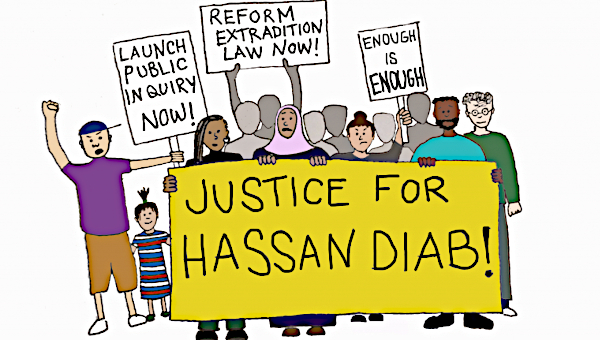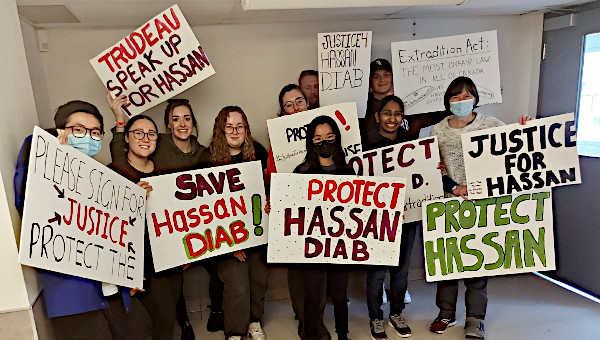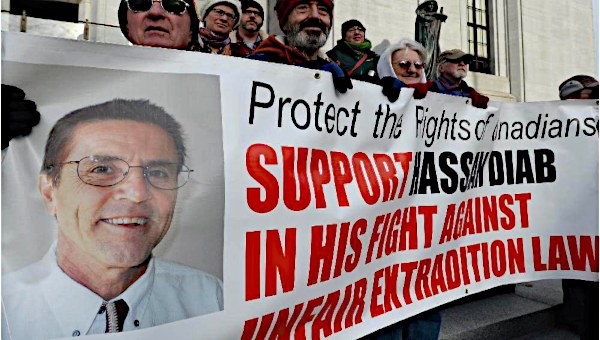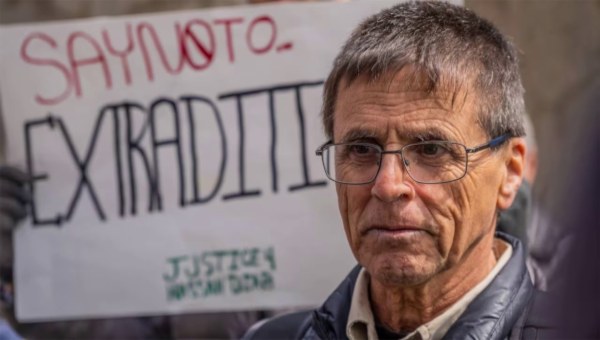Hassan Diab: Nothing Less Than a Public Inquiry Will Do
He has been compared to Alfred Dreyfus, the iconic 19th-century French victim of false accusation and racism. The entire spectrum of the Canadian press has covered his unfolding story since its inception in 2007. His return to Canada from France in January 2018 was breaking news. An Ottawa sociology professor, Dr. Diab is the Canadian citizen who, at the behest of France, was sought for extradition. Subject to allegations of involvement in the bombing of a Paris synagogue in 1980, he was pursued and harassed by the RCMP in 2008. Arrested on November 13th of that year, denied bail, and jailed in the disreputable Ottawa Carleton Detention Centre, he was then released in April 2009, only to be placed under the most draconian house arrest conditions. In 2014, after prolonged and suspect hearings, his extradition to France was sealed.
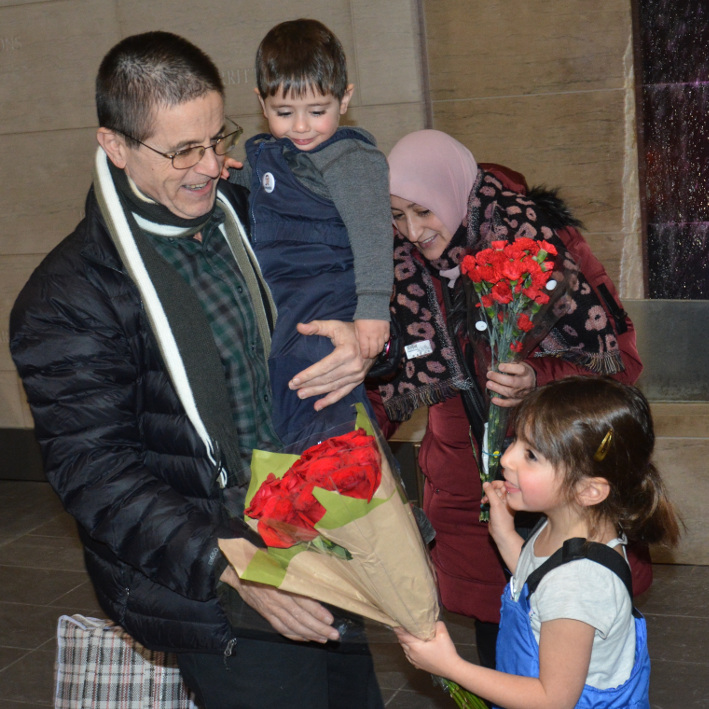
A decisive moment came on July 28, 2009 when Dr. Diab’s summer teaching appointment at Carleton University became public. The news provoked a most vilifying statement from the B’nai B’rith, which the latter sent post haste to Carleton University: “The safety and security of the community as a whole … are of great concern to us. … The last place in the world where this man belongs is in a university classroom, in front of impressionable students.” Carleton University yielded to this external pressure and unceremoniously terminated Dr. Diab’s summer contract.
Extradited to France
Between 2010 and 2011, Dr. Diab endured a highly prolonged, dubious, and exasperating process of extradition hearings, grounded in secret, unsourced intelligence that confounded even the extradition judge. Barely convinced by the convoluted logic of the case, the judge nonetheless ordered the extradition. Dr. Diab’s lawyer, Don Bayne, produced an eminently powerful appeal that was denied at every court level. His eloquent plea to the Minister of Justice (Rob Nicholson) was cavalierly dismissed. In 2014, Dr. Diab was extradited to France.
Compelled to leave in haste, he departed with but four items of clothing and no chance to say goodbye. His wife and toddler were left hanging in utter desperation. Thus began the next phase of Dr. Diab’s ordeal – three years and two months in a maximum-security French prison (Fleury-Mérogis) for a crime he never committed and for which he was never even charged.
Rania Tfaily, his wife, describes his coerced departure as a nightmare. As if sucked down the vortex of a black hole, he remained incommunicado for an entire month. She received no direct word of his whereabouts or of his welfare. A Carleton University professor, she was seven months pregnant with her second child at the time, left to agonize in solitude with no relief from her nightmare. The heart-wrenching questions from her bewildered toddler daughter came regularly: “Where’s daddy?”
The case of Dr. Diab represents a shocking miscarriage of justice, committed by sundry Canadian and French authorities that presumed him guilty, and were driven to see that such a perception would stick in the public’s mind. Their actions upended Dr. Diab’s life, subjected him, along with his wife, to years of torment and humiliation, all on a contrived allegation – involvement in a terrorist bombing at a Paris synagogue in 1980 – a groundless accusation issued by a foreign state and inflamed by rumour and racism.
Dr. Diab’s ordeal can be attributed in part to France. CBC recently learned that when French authorities made a formal extradition request to Canada, they “were aware of – and failed to disclose – fingerprint evidence that ultimately helped to clear Hassan Diab of committing a terrorist attack … [C]ourt documents show French prosecutors denied the evidence even existed.” Having already analyzed Dr. Diab’s fingerprints in 2008, and having ascertained a mismatch months before making the extradition request, they knowingly pursued the wrong man.
Canada Implicated
But Canada is equally implicated in this affair. Our deeply defective extradition law, which overrides the individual’s Charter of Rights and Freedoms, allowed blatantly false evidence from France to justify sending Dr. Diab to indefinite “purgatory,” to languish in solitary confinement in a maximum-security prison for more than three years. But it was not only the law that facilitated this unjust extradition; it was also agents of the law who “pro-actively” sought it.
Three key elements stand out in this embroiled narrative and they are now the object of intense public concern: 1) France framed Dr. Diab by denying that it knew (already in 2008) that his fingerprints did not match those of the suspected bomber; 2) Canada’s flawed extradition law deprives the sought individual of the right to invoke evidence in his own defense beyond the record of the case (e.g., Hassan Diab was not in France during the 1980 bombing attack, but was not allowed to bring forth this alibi); and 3) Canadian officials in the Department of Justice, at the direction of a senior lawyer, Claude Lefrançois, actively propped up the French extradition case, delaying court procedures and withholding vital information.
In November 2009, Lefrançois requested a comparative analysis of fingerprints. In early 2010, the RCMP produced the analysis. The fingerprints did not match. Lefrançois would have known this throughout the extradition hearings, yet he never shared the information with the defence or showed it to the Canadian judge who made the extradition order. In fact, Lefrançois “…regularly exchanged memos with his French counterparts pushing for and obtaining court delays until the French authorities could find a “smoking gun” – handwriting analysis that would guarantee Dr. Diab’s extradition. And while “that hunt for case-saving evidence continued, court transcripts show Lefrançois repeatedly told the court he had no direct knowledge of what France was doing – despite having directed France to find the evidence.”
For a decade, then, France concealed possession of fingerprint evidence that would have refuted allegations against Hassan Diab. But for eight years, Canadian government officials also knew that Dr. Diab’s fingerprints did not match those of the suspected bomber. They concealed this fact from the court, acting underhandedly to abet a French extradition request that was tainted from the outset.
These alarming disclosures beg fundamental questions: how and why did our former government facilitate the extradition of one of its citizens by withholding critical information that would otherwise have saved him years of torment? Given this egregious irregularity in judicial and government proceedings, and given that Canada’s extradition law offers few, if any, safeguards to protect the requested individual from extradition, it behooves all Canadians to ponder seriously the extent of their civil liberties.
One Man’s Ordeal
The case of Hassan Diab recalls the canary in the mine. From the depths of one man’s ordeal, it illuminates a warning sign that we must all heed. Any one of us, however innocent, could fall into the same dark hole of hell that swallowed Dr. Diab for ten years.
Now fully informed of Dr. Diab’s story, Canadians are petitioning the Government to set up an independent and public inquiry: 1) to study the actions of Canadian officials involved in abetting the cause of a foreign state by actively promoting the extradition of Dr. Diab; and 2) to launch a substantive revision of Canada’s extradition law that trumps Canada’s Charter of Rights and Freedoms. The Government must act expeditiously on this matter, on behalf of every one of us, but most importantly, on behalf of Dr. Diab and his family. Only then will justice be served. •
Petition to the Government of Canada
e-1674 (Hassan Diab)
The Petition is open for signature until September 13, 2018.


